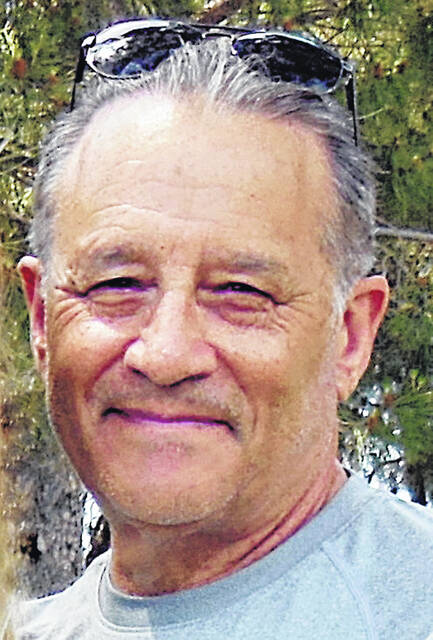
These days, how many times have you heard the statement that we live in a post-truth society? In my view, it’s a self-evident prophesy that if truth is diminished, so is democracy.
One of my favorite New Yorker magazine cartoons is of a picture of a dog sitting at a computer. The cut line? The dog says, “Online no one knows you’re a dog.”
A corollary might be, “When you’re online, nobody knows you’re ‘dogging’ it.” Disinformation and misinformation are arguably among the biggest threats our democracy has ever faced, and the scourge is both domestic and global in derivative.
The Pearson Institute and the AP-NORC Center for Public Affairs Research recently reported through polling that 95% of Americans identified misinformation as a problem. While many blamed governments, 75% blamed social media and tech companies and six out of 10 feared that friends or family were part of the problem.
The journalist and former Estonian president, Toomas Hendrik IIves, educated at Columbia University’s School of Journalism, once said something to the effect of, “Fake news is cheap to produce. Genuine news costs, but it’s worth it.” Here’s why it’s worth it.
Journalists are the conscience of democracy.
One of America’s best known journalists, Walter Cronkite, put it this way: “We all have our likes and our dislikes. But… when we’re doing news — when we’re doing the front-page news, not the back page, not the op-ed pages, but when we’re doing the daily news, covering politics — it is our duty to be sure that we do not permit our prejudices to show. That is simply basic journalism.”
Why is this so important? Recent and historical examples are easy to catalogue. The International Consortium of Investigative Journalists (600 journalists from 150 media outlets in 117 nations) just released what’s been called “The Pandora Papers.” It’s an exposé showing how politicians, royalty, drug dealers, celebrities, multi-millionaires and billionaires dodge their tax obligations by setting up shell companies and real estate deals robbing government treasuries of trillions of dollars in revenue that could be used for infrastructure, health care, hospitals, and public education, and, at the same time fueling national and global inequalities. “The Pandora Papers” exposed a scandal left opaque by the wealthy, manipulating the message until investigative journalists branded the scandal and messaging with facts.
Ohio Senator Sharrod Brown, head of the Senate Banking Committee, summarized it this way: “These gross abuses of our legal and tax systems enable criminals and fuel global inequalities by allowing the wealthy elite to avoid paying their fair share while working families are forced to make up the difference.”
Other examples abound. Thanks to the journalism of eminent news organizations like the Wall Street Journal, the Associated Press, The New York Times, NPR and PBS, among others, of course, we have been able to sort out fact from fiction regarding the recent national election, the extraordinary costs of pharmacy benefit managers (PBMs), voting rights, the recent exposé of the incredible U.S. Navy “Fat Leonard” scandal in the Pacific, and the assault against our national Capitol.
Closer to home, thanks to newspapers like the Columbus Dispatch, the Cincinnati Enquirer, and the Times-Gazette, we are able to sort out fact from fiction with respect to gerrymandering and redistricting in the state of Ohio.
Climate change and COVID-19 are existential issues of our time. They are both complex and evolving issues subject to all kinds of misinformation, yet were it not for serious, hard-working journalists who “do not permit their prejudices to show,” it would be difficult to chart our own thinking, opinions and paths on these incredibly important issues.
Tech giants and social media companies want us to believe that they are only the medium, not the message. Yet whistleblowers and investigative journalists have uncovered cynical strategies to engage teens with provocative material for purposes of engagement putting profits and subscribership above ethics and the mental health of many of our young people.
What triggered my initial impetus to write about this was the announcement this week by the Norway’s Nobel Peace Prize Committee to award this year’s prize to two journalists, Maria Ressa of the Philippines and Dmitry Muratov, editor-in-chief of Novaya Gazeta, Russia’s most independent newspaper. Since the Russian newspaper was launched, publishing stories of corruption, police violence, election fraud and deception in Russia, six of its staff members have been killed.
Ressa’s work focused on corruption within the Philippine government and the extra-judicial killings, promulgated by President Duterte and his anti-drug campaigns, have resulted in her being arrested multiple times.
Dmitry Muratov’s response to receiving the prize? He said it belonged to the newspaper’s staff and then declared: “Our journalists aren’t afraid to mine the truth in order to show it to you.”
In this brave new and blizzarding world of information and propaganda, misinformation and disinformation have come to masquerade as news. Make no mistake, such deceptions threaten our democracy. It is today’s journalists, in pursuit of facts and truth, without political or ideological biases, who are at the vanguard of what matters most in protecting our freedoms and our cherished democratic ideals.
Bill Sims is a Hillsboro resident, retired president of the Denver Council on Foreign Relations, an author and runs a small farm in Berrysville with his wife. He is a former educator, executive and foundation president.


